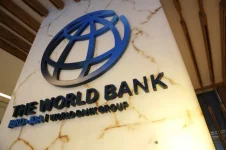The World Bank warned in a new report that climate change could slash Zimbabwe's GDP by 12 percent each year.
The report, released Friday in Harare, urges Zimbabwe to strengthen its defenses against climate impacts, with special attention to the agricultural sector. Agriculture forms a crucial part of Zimbabwe's economy, making up 11-14 percent of GDP. It employs 70 percent of the population and supplies 60 percent of industrial raw materials.
Zimbabwe faces growing risks from its dependence on rain-fed farming and maize production. The 2023/2024 farming season brought severe drought conditions linked to El Nino. Maize yields fell 60 percent below the five-year average. Poor rainfall and high temperatures have created widespread food shortages and economic difficulties.
The government aims to increase agricultural output to $12.5 billion by 2025, but climate challenges threaten this goal. "Climate shocks disrupt GDP, trade balances, and fiscal stability," the World Bank stated. The recent El Nino drought caused $363 million in losses.
"This cycle of drought and recovery undermines sustainable development and increases poverty levels," said Easther Chigumira, World Bank senior agriculture specialist and report co-author. She emphasized the need for major investments in climate adaptation and early response systems.
The report "Improving Resilience to Weather Shocks and Climate Change" outlines ways for Zimbabwe to build climate resilience and boost economic growth. It recommends strengthening the agricultural sector through targeted investments and improved planning.
The report, released Friday in Harare, urges Zimbabwe to strengthen its defenses against climate impacts, with special attention to the agricultural sector. Agriculture forms a crucial part of Zimbabwe's economy, making up 11-14 percent of GDP. It employs 70 percent of the population and supplies 60 percent of industrial raw materials.
Zimbabwe faces growing risks from its dependence on rain-fed farming and maize production. The 2023/2024 farming season brought severe drought conditions linked to El Nino. Maize yields fell 60 percent below the five-year average. Poor rainfall and high temperatures have created widespread food shortages and economic difficulties.
The government aims to increase agricultural output to $12.5 billion by 2025, but climate challenges threaten this goal. "Climate shocks disrupt GDP, trade balances, and fiscal stability," the World Bank stated. The recent El Nino drought caused $363 million in losses.
"This cycle of drought and recovery undermines sustainable development and increases poverty levels," said Easther Chigumira, World Bank senior agriculture specialist and report co-author. She emphasized the need for major investments in climate adaptation and early response systems.
The report "Improving Resilience to Weather Shocks and Climate Change" outlines ways for Zimbabwe to build climate resilience and boost economic growth. It recommends strengthening the agricultural sector through targeted investments and improved planning.












